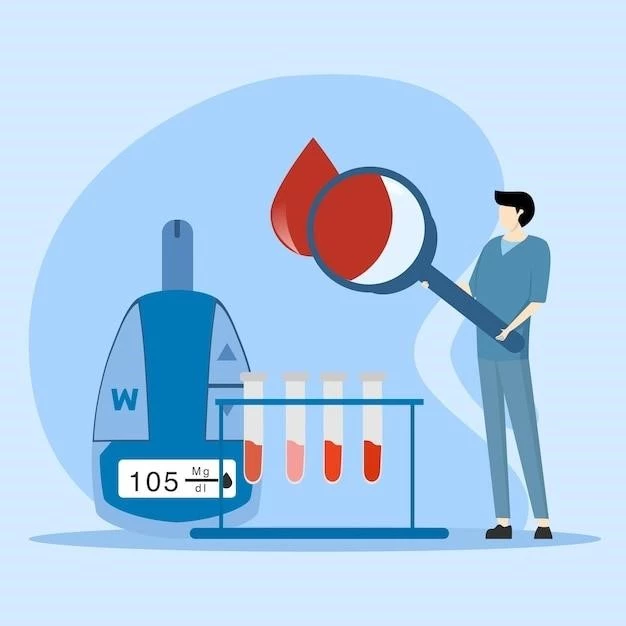Ticagrelor is used to prevent blood clots in patients with heart-related conditions․ It helps reduce the risk of heart attack and stroke by preventing platelets from sticking together․
Uses of Ticagrelor in Preventing Blood Clots
Ticagrelor, an antiplatelet medication, is commonly used to prevent blood clots in individuals with heart-related conditions such as a history of heart attack or angina․ By inhibiting platelet aggregation, it reduces the likelihood of clot formation, which can lead to serious cardiovascular events like heart attacks or strokes․ It is often prescribed following procedures like stent placement or in cases of acute coronary syndromes․ It is crucial to take this medication exactly as prescribed by your healthcare provider to maximize its effectiveness in preventing blood clots․
Ticagrelor can play a vital role in improving the outcomes for individuals at risk of cardiovascular events․ It is essential to understand the importance of regular intake and the significance of not missing any doses․ If you have questions or concerns about the use of ticagrelor in your specific case, consult your healthcare provider for personalized advice tailored to your medical history and current condition․
Side Effects of Ticagrelor⁚ Understanding the Risks
While ticagrelor is effective in preventing blood clots, it is essential to be aware of potential side effects that may occur․ Common side effects include bleeding, shortness of breath, dizziness, and nausea․ It is crucial to seek medical attention if you experience severe bleeding, black stools, or signs of an allergic reaction like rash or swelling․
Inform your healthcare provider about any side effects you may experience while taking ticagrelor․ They can provide guidance on managing these effects and adjust your treatment plan if needed․ It is important not to discontinue the medication without consulting your doctor, as this can increase the risk of clotting․ By staying informed and communicating openly with your healthcare team, you can navigate any potential side effects of ticagrelor safely and effectively․
Drug Interactions with Ticagrelor⁚ What to Avoid
When taking ticagrelor, it is crucial to be mindful of potential drug interactions that can impact its effectiveness or increase the risk of side effects․ Some medications that may interact with ticagrelor include blood thinners like warfarin, NSAIDs such as ibuprofen, and certain antidepressants like fluoxetine․
Inform your healthcare provider about all the medications, supplements, and herbal products you are taking before starting ticagrelor to avoid adverse interactions․ Your doctor can recommend alternatives or adjust dosages to minimize the risk of interactions․ It is important to follow their guidance closely to ensure the safe and effective use of ticagrelor in preventing blood clots․
Ticagrelor and Alcohol Consumption⁚ What You Need to Know
Understanding the interaction between ticagrelor and alcohol is crucial for your safety and the effectiveness of the medication in preventing blood clots․ Alcohol can increase the risk of side effects such as bleeding or dizziness when taken with ticagrelor․
It is advisable to moderate or avoid alcohol consumption while on ticagrelor to reduce the likelihood of adverse effects․ Discuss your alcohol intake habits with your healthcare provider to receive personalized recommendations based on your medical history and the prescribed treatment plan․ Prioritize your health by making informed choices regarding alcohol consumption while taking ticagrelor to optimize your cardiovascular health outcomes․
Ticagrelor in Surgery⁚ Precautions and Guidelines

When undergoing surgery while taking ticagrelor, it is essential to inform your healthcare team about your medication to ensure a safe procedure and optimal recovery․ Ticagrelor’s blood-thinning effects may increase the risk of bleeding during and after surgery․
Follow your healthcare provider’s guidance on when to stop ticagrelor before surgery to minimize the risk of excessive bleeding․ Your doctor may provide alternative blood-thinning medications for the perioperative period․ After surgery, resume ticagrelor as directed to prevent blood clots and maintain cardiovascular health․
Communicate openly with your surgical team about your medication regimen and adhere to the precautions and guidelines provided to promote a successful surgical outcome while managing the risks associated with ticagrelor use․
Ticagrelor vs․ Other Antiplatelet Medications⁚ A Comparative Analysis
When considering antiplatelet medications like ticagrelor for preventing blood clots, it is valuable to understand how they compare to other options available․ Ticagrelor belongs to the class of P2Y12 inhibitors, along with clopidogrel and prasugrel, which work to prevent platelets from clumping together and forming clots․
Compared to clopidogrel, ticagrelor has a faster onset of action and a shorter duration of the antiplatelet effect, making it a preferred choice in acute settings․ However, ticagrelor may be associated with a higher risk of bleeding․ Prasugrel, another antiplatelet medication, is more potent than ticagrelor in inhibiting platelet activation but is also linked to a higher bleeding risk․
Your healthcare provider will consider various factors such as your medical history, risk factors, and preferences when selecting the most suitable antiplatelet medication for you․ It is essential to adhere to the prescribed treatment plan and attend regular follow-up appointments to monitor the effectiveness and potential side effects of ticagrelor or any alternative medications chosen․
Conclusion
Understanding the uses, risks, interactions, and considerations related to ticagrelor is vital for individuals seeking to prevent blood clots and manage cardiovascular conditions effectively․ By recognizing the role of ticagrelor in inhibiting platelet aggregation and reducing the risk of serious events like heart attacks and strokes, patients can make informed decisions about their treatment․
While being aware of the potential side effects and drug interactions associated with ticagrelor is important, proper communication with healthcare providers can help mitigate these risks and optimize the medication’s benefits․ Adhering to precautions such as alcohol consumption recommendations and surgical guidelines is crucial for maintaining safety and efficacy․
Comparing ticagrelor to other antiplatelet medications provides insights into the unique characteristics and considerations of each option, allowing for personalized treatment approaches based on individual needs and medical histories․ Ultimately, the collaborative effort between patients and healthcare professionals is key to achieving positive outcomes when using ticagrelor for blood clot prevention․
